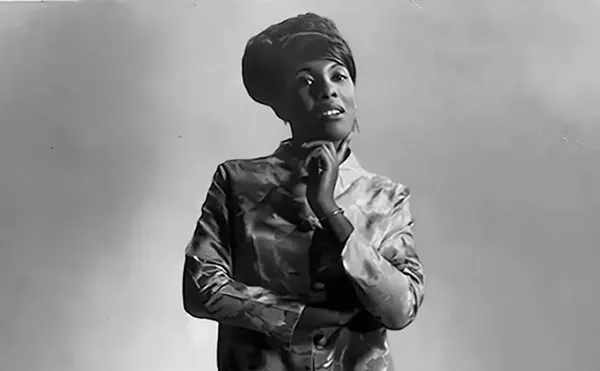
Audio By Carbonatix
[
{
"name": "GPT - Leaderboard - Inline - Content",
"component": "35519556",
"insertPoint": "5th",
"startingPoint": "3",
"requiredCountToDisplay": "3",
"maxInsertions": 100,
"adList": [
{
"adPreset": "LeaderboardInline"
}
]
}
]
French chanson, musette and manouche are song styles best experienced in the intimate cafés and bars of Paris. Chanson is most often associated with the singer Edith Piaf, who was an international star from the 1930s to the 1960s and remains a figure of cult appreciation. The other two are less purely French and more an amalgam of peasant traditions brought to the city from all over Europe.
By the end of Piaf’s career, a new wave of singer-songwriters was establishing a darker, hipper but no less romantic French pop language.
Led by Serge Gainsbourg and sexy Ye-Ye girls like Brigitte Bardot, Jane Birkin and Françoise Hardy, the new Paris pop represented love and death in a time of cultural revolution. The cigarettes, the drugs, the politics were stronger. The haircuts were much better (think of an androgynous society where everyone under 30 looked like Julian Casablancas of the Strokes).
French Cafe, a compilation of 13 songs on the mighty Putumayo label, doesn’t tell us anything new about these various Parisian lounge music styles. But it works well enough as a beginner’s guidebook, prettily packaged with a 35-page booklet that includes short bios and photos of all the artists.
Contemporary stylists featured include Coralie Clement, a breathy singer with a little girl voice that recalls Françoise Hardy’s; Mathieu Boogaerts, who blends soft electronics with African pop and reggae; Polo, whose guitar style comes uncomfortably close to Django Reinhardt’s, and Baguette Quartette, an insipidly named gypsy jazz cabaret act from Berkeley, California, of all places.
Not surprisingly, Gainsbourg’s three contributions here still retain a modern edge.
The song he sings, “Marilou Sous la Neige,” is not remarkable, but two others performed by lovers and collaborators Birkin and Bardot are almost worth the price of the CD.
Birkin sings “Elaeudania Teiteia,” which can be found on Gainsbourg’s Du Jazz Dans le Ravin and other releases, and Bardot croons the break-up ballad “Un Jour Comme un Autre” so convincingly you can imagine her tear-stained face on your shoulder, a yum-yum thought.
Other highlights include “Si la Photo est Bonne” by the late Barbara, who was known as Chanson’s Woman in Black, and “Je M’Suis Fait Tout Petit,” a 1950s hit by Georges Brassens, who plays the tough guy with the soft heart on the song.
Here’s a tip for all you cynics who crave greater challenges: seek out a couple of recent Gainsbourg rereleases (featuring reggae and dub versions of songs he recorded in 1979-81 with some of Kingston’s leading session musicians) or the gorgeous records produced by Bertrand Burgalat, the self-described genius of the Paris studio.
To fully appreciate the music of the French may require leaving the limitations of the café behind.
E-mail Walter Wasacz at letters@metrotimes.com.





